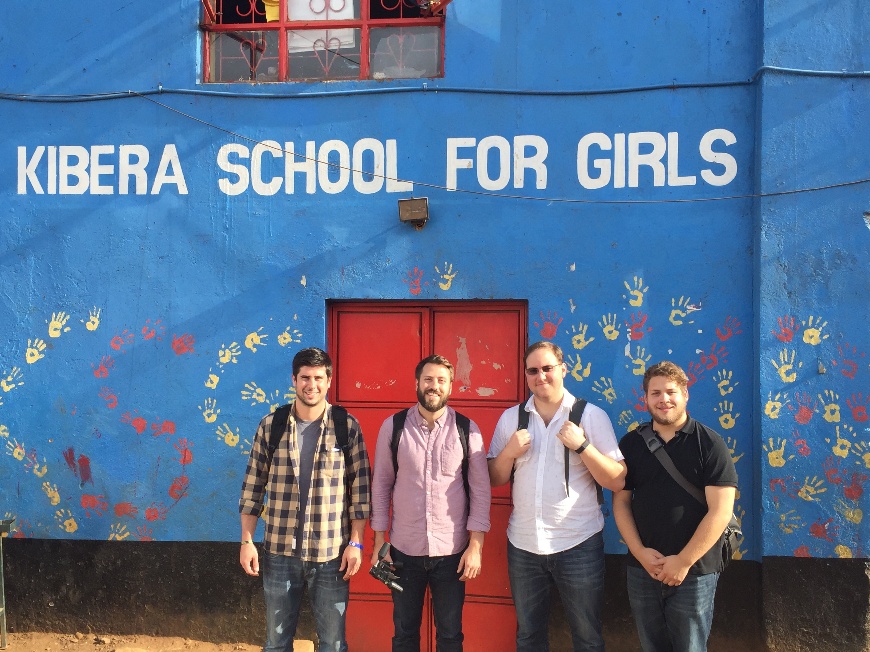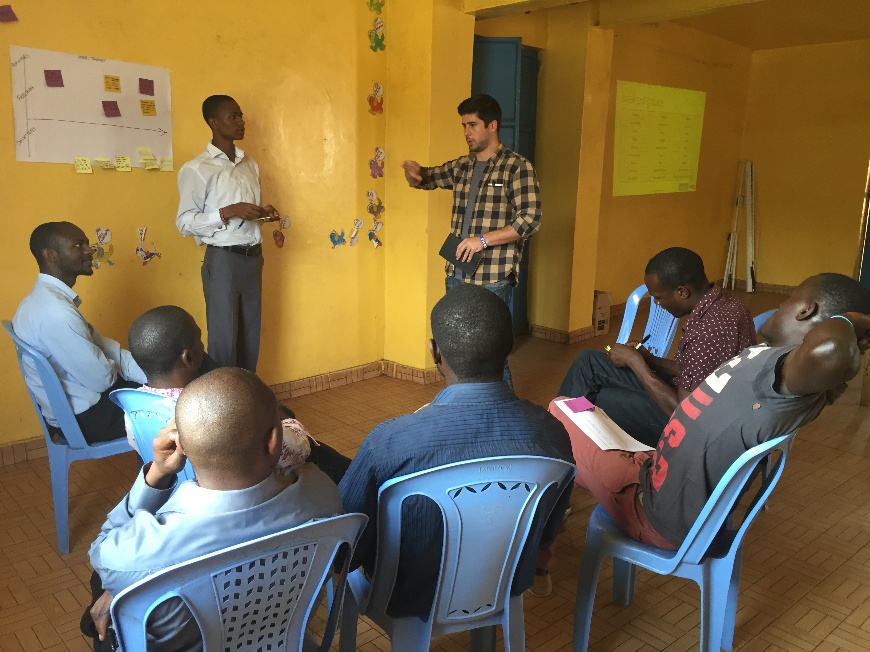
This blog is a reflection from the team at one of our awesome partners, Solstice Mobile! It was originally published on their site, but we couldn’t help but share!
By John Sullivan
Contributions to this blog were made by Allison Glaubke, Ricky Keller, Nathan Ley, and David Maslowski.


When I got the news that I was selected to go to Kenya as part of Solstice’s Digital Solutions Grant Program, to say I was euphoric would be an understatement. I remember not being able to sleep. I remember feeling extremely fortunate. I remember thinking: outside of going halfway across the world, I have absolutely no idea what to expect.
In June, we began working remotely with Shining Hope for Communities (SHOFCO), a nonprofit based in slums of Kibera, Nairobi. SHOFCO contributes to their communities in a variety of significant ways. Between free health care, education for girls, water & sanitation initiatives, and community empowerment – we knew there were plenty of opportunities for us to work together. As we started to define our collaboration and partnership, we agreed that an initiative related to their free health clinics allowed the greatest opportunity for us all to deliver a focused and meaningful solution.
And so in mid-August, we began. Using an agile delivery process with aspects of human-centered design, and communicating through Skype in the form of weekly calls and one-off discussions, we worked through the details of building an automated SMS messaging system to remind patients about their upcoming appointments. Through initial discovery research and a process called journey mapping, we discovered clinicians were manually sending out text messages and calling patients to remind them about their appointments. Our goal with the automated system was to allow clinicians to focus on the more strategic aspects of their caregiving and community health education.
Originally, our plan was to have the majority of our solution built by the time we landed in Nairobi. In having it built beforehand, we could use the time on the ground to test, gather feedback, and iterate on improvements. Certainly this was an aggressive task, and as can be expected when building software, we encountered both success and failure – the automation worked, but once on the ground, full integration proved more difficult than any of us had thought.
And that’s where the fun really began.
But first, a note on the Kibera community and the experience of being on the ground with our SHOFCO teammates.
Though I’d heard a few things about Kibera, I didn’t do any research beforehand – wanting to go into the first day with an open mind and no preconceived notions. I was aware Kibera was a poor community, and there is no denying its people are experiencing varying degrees of unspeakable inequity and hardship. And yet, Kibera is rich with energy, life, happiness, and hope.
Walking to SHOFCO, the first thing that struck my teammates and I, was the incredibly enterprising nature and atmosphere of Kibera. As an outsider with a degree of uneducation on the day-to-day lives of those in the community, it is something that will stay with me the rest of my life. The people there are faced with inequities we may never fully understand. And yet, they smile. They build businesses. They sacrifice for their families. They are servant leaders for their community. As we experienced the broad reach of SHOFCO’s programs and spoke with those impacted, the notion that hope can be given and used for empowerment became a very tangible and concrete understanding.
So there we were, in Kibera, at SHOFCO. Solution built and living on a flash drive. Although we hadn’t integrated or tested it on their systems yet, all we had to do was plug in and make it work. Easy peasy, right?
Of course nothing worthwhile is ever that easy. But through the dedication of my teammates and the incredible support and collaboration of our SHOFCO counterparts, we stayed flexible and delivered a solution that takes into account pre-existing systems used by the clinicians and insights gained through conversations with patients and beneficiaries. The system will go into use this year, and as it does, we hope to provide support and iterate on future implementations and improvements.
As we left Kibera for the last time, I allowed myself a moment to reflect. I had come to Kenya to form partnerships and friendships. I’d come in an attempt to apply my professional skills to an avenue with greater human impact. I’d come to Kenya to further a notion of world citizenship. I’d come because of the incredible opportunity to work with SHOFCO. As I reflected on that, I was speechless. I mean, what can you really say about a life-changing experience?
Special thanks to our friends at SHOFCO, Alba Gituru, Peter Okoth, Naomi Kirui, Johnson Abuto, and Jordyn Wells.
